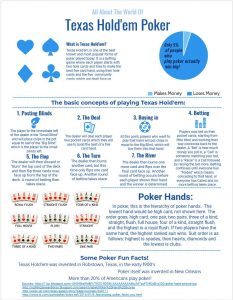Exploring The Psychology Behind One-Armed Bandit Addiction

main slot Written By-Graham Zhang
As you being in front of a slots, the hypnotic pull of the spinning reels and the periodic jingle of a win can be oddly tempting. But have you ever before questioned what lies beneath this relatively innocent leisure activity? The psychology behind one-armed bandit dependency unveils a complex internet of factors that keep gamers returning for more, shedding light on the complex functions of the human mind when confronted with the excitement of gaming.
## The Allure of One-armed Bandit Games
If you've ever found yourself mesmerized by the flashing lights and enticing sounds of vending machine, you aren't alone in experiencing the allure of these games. The thrill of expectancy as the reels spin, the adrenaline thrill when symbols line up, and the possibility of striking a prize all add to the magnetic pull of vending machine. The repetitive nature of pressing the button or pulling the lever, paired with the periodic rewards, develops a cycle of exhilaration and support that maintains you returning for even more.
Slots are created to be aesthetically enticing, with lively shades, catchy noises, and engaging motifs that draw you in. The element of randomness in the end results adds an air of changability, making each spin feel like a new possibility for success. The fast-paced action and instant gratification of slot games supply a fast retreat from reality, offering a temporary interruption from day-to-day worries and stress and anxiety. As you chase after that elusive big win, the exhilaration and hope keep you connected, making it difficult to stand up to the lure to play simply again.
## Cognitive Biases in Gambling Actions
The appeal of vending machine games can frequently lead people to exhibit cognitive predispositions in their betting behavior, influencing their decision-making processes and understandings of risk.
One usual cognitive prejudice is the casino player's fallacy, where people believe that past end results will certainly affect future outcomes. Web Site can result in enhanced betting after a string of losses in the hopes of a win.
An additional bias is the illusion of control, where players think they've even more impact over the outcome of the game than they really do. This can cause increased self-confidence in decision-making while playing slots.
Furthermore, verification predisposition plays a role, where people seek information that confirms their ideas about winning approaches while disregarding proof to the contrary.
These cognitive predispositions can misshape fact, leading people to make illogical choices and sustaining habit forming habits in slot machine gaming.
## Neurological Aspects of Dependency
Discovering the neurological devices underlying addiction sheds light on the complex procedures that drive compulsive actions in fruit machine players. When you involve with slot machines, your mind goes through complicated adjustments. Dopamine, a natural chemical connected with satisfaction and reward, plays an essential role in addiction.
Every time you pull the bar or press the button, your mind prepares for a prospective reward, launching dopamine. source website enhances the habits by creating a sense of euphoria, making you hunger for that sensation repeatedly.
In addition, the constant stimulation from slots can change your brain's reward system. The repeated exposure to the thrilling lights, sounds, and occasional victories can desensitize your mind's incentive paths, leading you to look for much more considerable incentives to attain the very same degree of complete satisfaction. This sensation is referred to as resistance, where over time, you may need to enhance your gaming habits to experience the same pleasure as in the past.
Recognizing these neurological elements of addiction can assist you recognize the effective grip slot machines can have on your mind and make notified decisions to avoid falling into uncontrollable gaming patterns.
## Final thought
You find yourself mesmerized by the flashing lights and thrilling audios of slot machines, pulled in by the expectancy of a big win. Your cognitive biases, like the bettor's misconception and impression of control, misshape your decision-making.
The release of dopamine in your brain enhances pleasant experiences, leading you to seek bigger benefits. Recognizing the psychological elements at play can assist you recognize and address your slots addiction before it spirals out of control.

